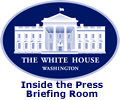 |
|||||||||||||||
For Immediate Release
Fact Sheet
increased regional cooperation in this increasingly vital part of Europe. Since then, we have identified and begun to implement a number of cooperative activities within the framework of the U.S. Northern Europe Initiative (NEI) and the EU's Northern Dimension strategy. The two sides have identified four priority areas: environment, health (HIV/AIDS and TB), law enforcement and anti-corruption, and civil society development. They are working together concretely on the environment and in civil society development and hope to identify additional specific programs in the other two priority areas over the next year. The following is a summary of their efforts to work together in environment and civil society development. Environment ? Watershed Management: Watershed-based management is a central theme of the EU's water directive and is an approach pioneered in the North American Great Lakes region. The U.S. and EU will continue to work cooperatively on development and implementation strategies in selected watersheds within the Baltic States as well as shared watersheds between the Baltic States and Russia (especially Kaliningrad and Northwest Russia). Key to the U.S. program will be the use of citizen groups and NGOs to carry out water quality monitoring and data collection. The U.S. and EU will closely coordinate their efforts through annual planning meetings. ? Invasive Species: Over the next year, experts from the U.S. and Commission will identify potential invasive species and their pathways into EU and U.S. waters, focusing on the Baltic Sea and the North American Great Lakes region (which share geographical characteristics). The two sides will present the results of these consultations, including an assessment of potential impact and proposed methods of control and eradication, at an April 2002 conference on invasive species in The Hague. ? Mercury Clearinghouse: The U.S. Environmental Protection Agency (USEPA) is currently developing a prototype "clearinghouse" on mercury which provides a comprehensive framework for managing information regarding mercury regulation, research, reduction tracking, and risk management. The European Environmental Agency (EEA) has also been developing databases and other resources to provide information on a range of toxic substances. Beginning in October 2001, the two sides will explore the feasibility of sharing information through linked databases. ? Toxic Waste in Russia: The U.S. and EU will support, with financial assistance and technical expertise, restructuring of the toxic waste processing facility at Krasny Bor, Russia. Civil Society Both the U.S. and EU devote significant resources to promoting the development of vigorous and open civil societies in the Baltic States and Russia. U.S. and EU missions in the region work closely on the ground to make these efforts more effective. Highlights include: ? Social Integration in Latvia: The U.S. and EU will fund a significant portion of Latvia's language training program for Russian speakers. This program is an important part of Latvia's effort to integrate Russian-speaking non-citizens into society. ? Trade Union Education in Russia: The U.S. and EU are funding complementary trade union education projects in northwest Russia as part of broader trade union efforts in the country. ? Journalist Training/Press Freedom in Russia: Both sides will continue programs to train Russian journalists in professional reporting standards and ethics. # # # |
|
|
||||||||||||||||||||||||||||||||||||||||||||||||||||||||||||||
|
President
|
Vice President
|
First Lady
|
Mrs. Cheney
|
News & Policies
|
|

